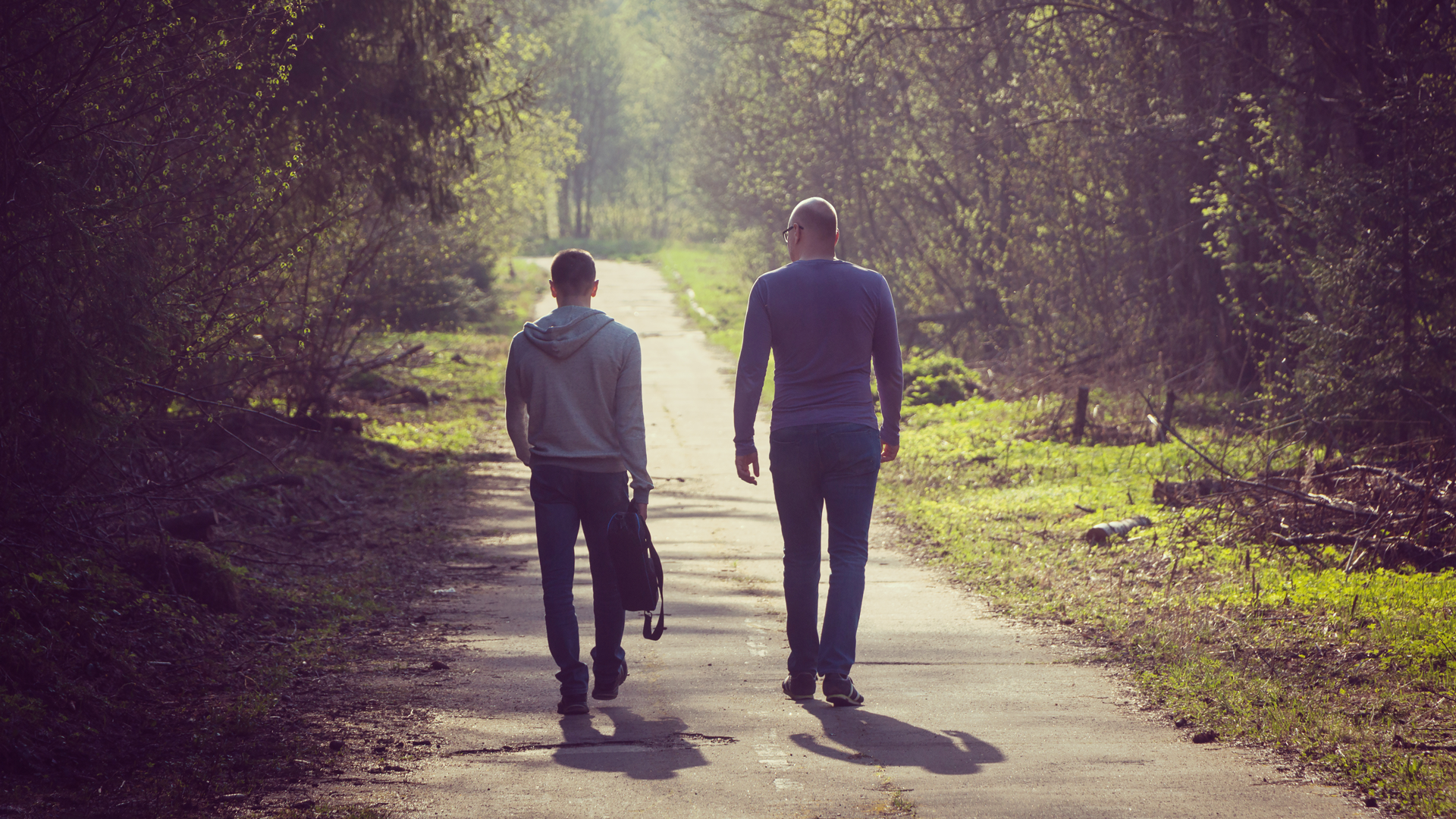Lesley Roberts explores the benefits of taking our coaching conversations out into the great outdoors
Nature has a wonderful power of putting things right, if allowed free play.
James Platt, 1883
Imagine if we let nature into our coaching work. Not just taking our coaching conversation outside but stepping back and letting nature play an equal part in the relationship with our coachees. What would we mean by that and what would it bring?
When we coach outdoors there are some choices. Do we take our indoor methods and conversations outside and just enjoy some fresh-air while we talk, or, do we embrace all that nature has to offer by us stepping back to a minor role in the relationship? John Leary-Joyce says that the quality of coaching is in the coach ‘being’ rather than the coach ‘doing’. The more ‘being’ that coaches can do when they are outside the more nature does some of the ‘doing’ – sharing in the relationship alongside us. When outdoors, nature is truly an active participant in the coaching relationship. Partnering with nature as a co-facilitator is about consciously inviting nature in – all being in the relationship together. Ronan Berger says ‘Addressing the environment not merely as a setting but as a partner in the process.’
The experience of engaging with nature offers richness, depth, new perspectives and ‘magic’. At one end of the spectrum, it can be as simple as offering a client a moment of reflection while looking at a beautiful view, allowing nature alone to positively support their meaningful reflection. At the other end, really skilful coaches step back almost entirely, allowing nature to do much of the coaching! Nature is a living, sensual place, evoking work that involves all the senses and communication channels: physical, emotional, imaginative and spiritual – see David Abram’s 1996 book and Theodore Roszak’s 2001 work. Working with nature as a partner in coaching can be transformational for coach and client.
Nature is a live dynamic environment that is not under the control or ownership of either the coach or the client
The benefits to the client from being coached outdoors are multi-faceted and interlinked. The main themes (beyond mental and physical wellbeing) are that nature, movement and an enhanced coach relationship provide the foundation for a rich and valuable experience of connection, wisdom, healing, creativity, insight and spirituality. Let’s begin with the impact that nature can have for the client. One of the basic concepts of coaching outdoors is that nature provides a therapeutic setting. Nature is a live dynamic environment that is not under the control or ownership of either the coach or the client. It is an open independent space, which existed long before their arrival and will remain long after they depart. Nature provides a sense of wonder, an experience of beauty, greatness and strength beyond anything we could create. It is a great leveller and offers an incredible sense of perspective for people. It’s richness, variety and stimulation are a huge resource for creativity in both coaches and clients. The awe, wonder and beauty in nature offer so much more to spark ideas than the sterile man-made office.
Then there is the experience of walking. A F Turner looked at walking as a coaching tool and found that the many benefits of walking included the natural motion of walking itself giving a connection between mind and body, enhancing thinking processes. Our forward movement while walking creates a momentum, a progression experienced both physically and mentally – ‘mind and body are one’, which seems to help coachees with getting ‘unstuck’.
And finally, the experience of the enhanced relationship between coach and client. This can be attributed to a couple of things. Firstly, walking together offers a chance to deepen rapport and maintain a similar outlook. There is nothing of the confrontational eyeball-to-eyeball experience that occurs when we sit facing each other, rather there is a companionable side-by-side journey. Walking also involves coordinated movement between coach and client where they fall into step with one another, this happens both literally and metaphorically. Secondly, coaches describe a feeling of being ‘in flow’ when they work outdoors. Of being fully immersed in the experience with energised focus and enjoyment, fully present and at ease with a sense of timelessness. Coaches describe being more creative, insightful, open and natural. This feeling of effortless coaching brings the coach at their best to the relationship in turn, the coachee experiences a deeper sense of trust and a more valuable coaching experience.
It is at this point that coaches are probably wondering about the balance of when to bring nature into the conversation and when not to. How to work with all this richness in a way that is natural and not ‘clunky’ or ‘forced’. How to get the balance right. There is no right or wrong. It depends on the client, the day, the issue, how the coach is feeling, their skill set and preferences and what nature offers. Coaches who expand their practice in this field, use their intuition, add a pinch of bravery, and give it a go.
Lesley Roberts is director of Coaching Outdoors




